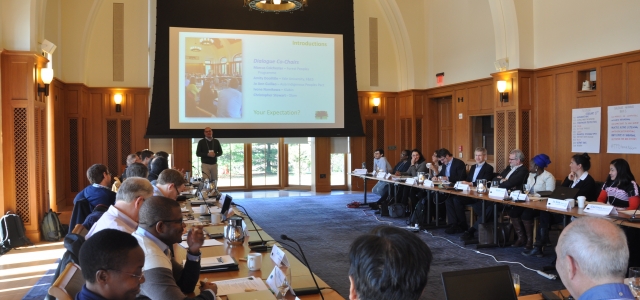First published on 02/28/2018, and last updated on 04/06/2018
On February 27-28, the Forests Dialogue held a conference in New Haven, Connecticut. Professor José Aylwin, ICCA Consortium Council Member with special responsibility for legal issues related to ICCAs participated in the event for the Consortium. The event, hosted by the Yale Environmental Dialogue Initiative, had the following objectives:
1. Share understanding of the background of land tenure reform among various stakeholders including indigenous peoples, forestry companies, agricultural companies, development agencies and relevant government bodies
2. Examine and learn lessons from concrete situations where land tenure reforms have been, or are being, used
3. Identify key fracture lines within land tenure reform with opportunity for improvement and collaboration across stakeholders.
The dialogue gathered more than 30 leading actors from a variety of sectors and stakeholders that reflectedon the challenges and possible solutions related to forest and land tenure reform to provide a more secure basis for forest and land management.
The need of this reform has been widely acknowledged through the decisions of the Inter-Governmental Panel on Forests, the UN Forum on Forests, and the FAO’s Voluntary Guidelines on the Good Governance of Tenure of Lands, Fisheries and Forests, as well as international development agencies like the World Bank. It was also acknowledged by decisions and recommendations made by other international processes, such as reports of the UN Special Rapporteurs on the Right to Food and on Indigenous Peoples, as well as the Recommendations of the UN human rights treaty bodies, the Decisions of the Parties to the Convention on Biological Diversity, the UNFCCC and UNREDD. It was an opportunity to hear the perspectives of different stakeholders.
For full background information of the meeting and presentations, please click HERE.
